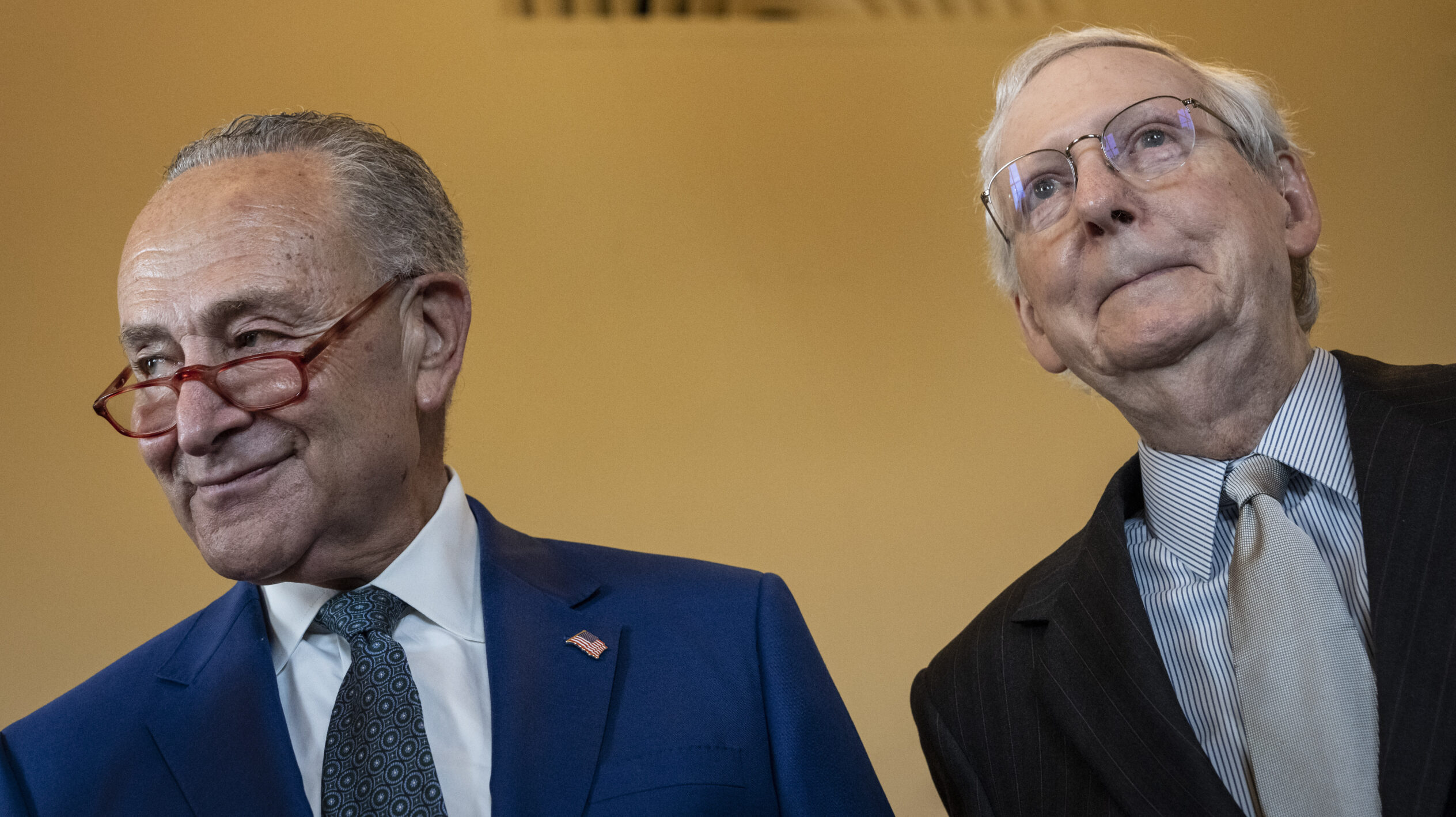
With warning signs that a government shutdown could be imminent, Congress will have to overcome a series of self-inflicted hurdles to get to the finish line. In the op-ed below, Elaine McCusker and John Ferrari, two former Pentagon budget officials, call on members from both sides of the aisle to unite over the common defense.
As the end of the federal fiscal year rapidly approaches, we are faced with a complicated mix of competing, conflicting, and divisive matters that now appear likely to result in at least a short-term government shutdown. Many of our elected representatives seem unaware of or unconcerned with the consequences a shutdown would bring.
Government shutdown threats are not uncommon — in fact, the government has shut down in full or in part on several occasions over the last decade. But the negative impacts of a government shutdown do not end when the shutdown is over. In some ways the national security repercussions of those events reverberate today as, combined with insufficient and delayed funding year after year, military competitiveness is lagging, readiness remains tentative, the industrial base is weak, and supply chains are vulnerable.
Added to these challenges are rising deficits, a vocal minority opposed to crucial continued support to Ukraine, and political distractions that make reasonable compromise very difficult. For example, making support for a continuing resolution to keep the government operating contingent on an impeachment inquiry, discretionary spending that is lower than caps enacted as part of the Fiscal Responsibility Act, and numerous other conditions that change day-to-day present a hostage-taking environment that inhibits real discussions necessary for a solution to avoid prolonged doomsday budget scenarios.
With so many moving parts in play, it is useful to center on a simple phrase: “The main thing is to keep the main thing the main thing.”
So, what is the main thing? It has to be national security. Without that, all other things — domestic programs, environmental concerns, and deficit reduction initiatives — fall away. Even the economy, which directly supports and is supported by national defense, will only thrive with security and stability.
China and Russia are not standing idly by while the U.S. government struggles to accomplish its most basic tasks. China continues to pursue its “non-war war” with a strategy of influencing public opinion and threats to Taiwan. Meanwhile, Russia is militarizing for the long haul with eyes already on other parts of Eastern Europe.
In the midst of these growing threats, the White House has threatened to veto the defense appropriation measures due to issues that have nothing to do with military capability or defense strategy. Meanwhile numerous military nominations, promotions and reassignments are in limbo due to one Senator’s frustration with a defense policy that has nothing to do with national security.
The House and Senate leadership must come together to resource the main thing, the national security of our nation. They must do the business of the people who elected them by keeping the government operating, avoiding a defense doomsday budget scenario, and continuing crucial support for Ukraine and the US industrial base that underpins that assistance.
The consequences of failure to reach such an agreement are severe: reputational and financial damage to US security, defense programs, and military service members and families; wasting billions of taxpayer dollars; increased loss of life by Ukrainian patriots as Russia assumes that the US will prove unreliable and tire of sending required equipment and aid; and hundreds of delays in new military modernization and capability efforts. At the same time, we will be condemning military families to life in substandard housing by not approving crucial housing replacement projects. And keep in mind, shutdowns also quickly impact those who can least afford financial instability, such as senior citizens and lower income Americans, including young members of the military and their families.
It is possible for a professionalism that places a priority on the good of the nation and its citizens to return, as has been the case in the past. Last year, the final 2023 defense appropriation was enacted on December 29, 2022 as part of a consolidated omnibus agreement. Though this was not ideal in supporting any concept of regular order, it at least demonstrated a sense of what was at stake.
Any political leverage obtained by holding hostage an agreement that allows enactment of fiscal year 2024 appropriations should be surrendered simply because it is in the best interest of the United States. Once our elected leaders have provided for the defense of our nation, then and only then should they fight over partisan political issues and, ideally, develop and debate solutions to the deficit, economic and other national challenges.
Elaine McCusker is a senior fellow at the American Enterprise Institute. She is a former acting undersecretary of defense (comptroller). Retired U.S. Army Maj. Gen. John Ferrari is a senior nonresident fellow at the American Enterprise Institute. Ferrari previously served as a director of program analysis and evaluation for the Army.